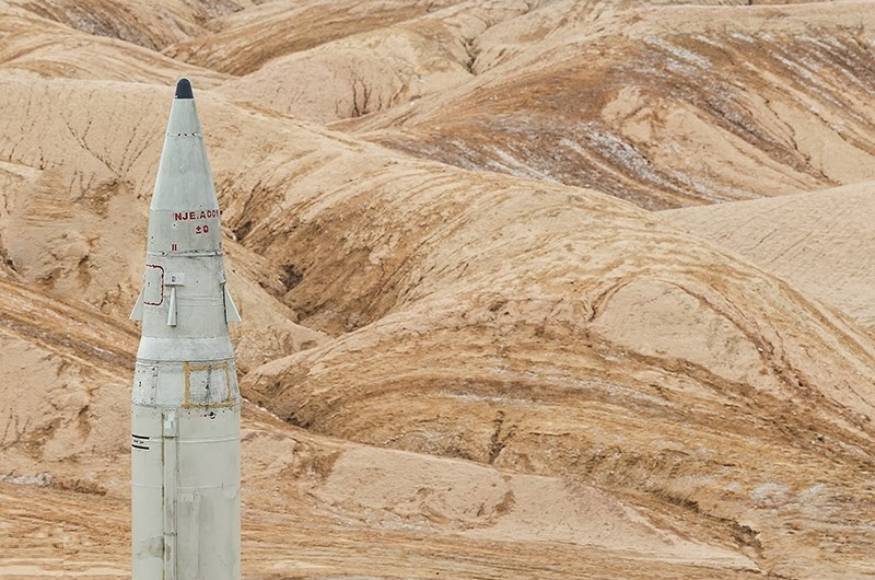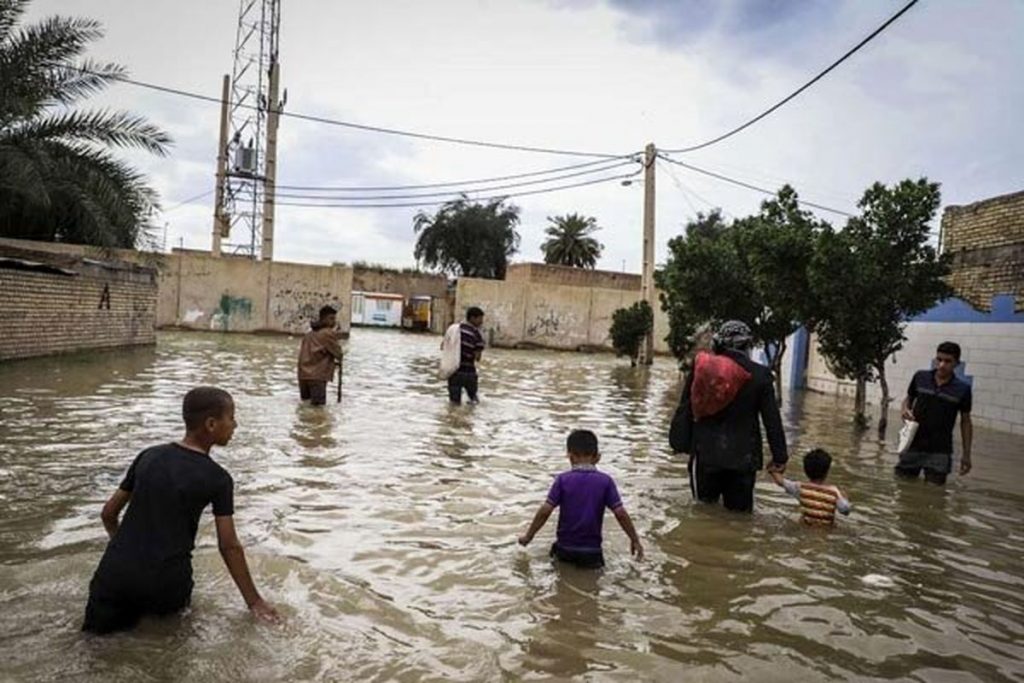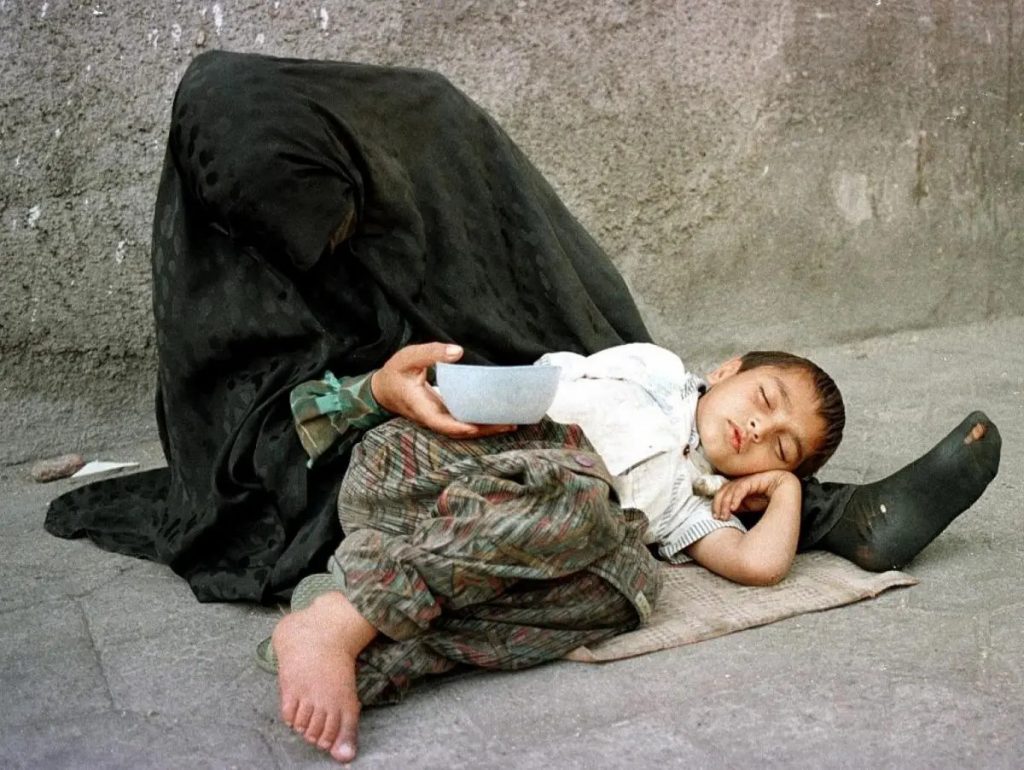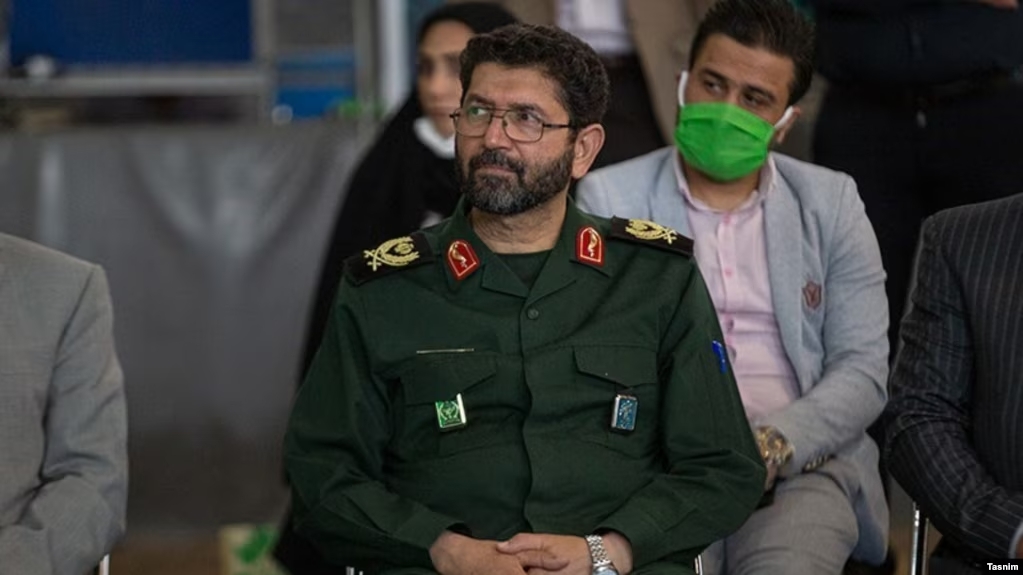
Behind the Scenes of a Threat
Alireza Taqavi Nia of Arman-e Emrooz wrote in an editorial that in a recent statement published by the Seda and Sima news agency, Major General Ahmad Haqtalab, head of the IRGC’s Nuclear Facilities Protection and Security Command, highlighted a significant concern regarding potential threats from the Zionist regime. He emphasized that if Israel persists in its threats against Iran’s nuclear facilities, it could compel Iran to reconsider its nuclear doctrine and policies. This declaration, unprecedentedly voiced by a high-ranking IRGC official, holds substantial implications. The editorial noted that Iran’s nuclear policies have historically prioritized the peaceful utilization of nuclear expertise across various sectors while staunchly disavowing the pursuit of nuclear weapons. However, General Haqtalab’s remarks underscore a crucial nuance: continued Israeli threats might prompt a reevaluation of Iran’s nuclear stance. This signals a potential departure from previous limitations imposed on the program. Under normal circumstances, Iran has maintained a commitment to its nuclear doctrine, which excludes the pursuit of atomic weaponry. Yet, the prospect of Israeli aggression introduces a variable that could necessitate a fundamental reassessment of Iran’s defense strategies. National security and survival are paramount concerns for any nation, and Iran would be compelled to safeguard its interests by any means necessary. The editorial argued that it is crucial for Israel to heed the message conveyed by General Haqtalab, as the security of Iran’s nuclear facilities represents a red line for the nation. Should conventional defense mechanisms prove insufficient in the face of external threats, Iran reserves the right to adapt its defense and nuclear doctrines accordingly. The columnist added that while Iran’s current nuclear doctrine precludes the pursuit of nuclear weapons, the specter of Israeli aggression may prompt a legitimate reconsideration of defense policies. The Iranian republic asserts its right to protect its national security and survival, and any adjustments to its strategies in response to external threats are deemed justifiable.
Management of Tensions
In a recent editorial penned by Abdolreza Faraji-Rad for Arman-e Emrooz, the evolving dynamics of the Middle East are scrutinized with a keen eye. Faraji-Rad delves into the intricacies of recent developments, suggesting a nuanced understanding of the motives behind the actions of involved parties. Faraji-Rad observes that amidst these developments, there appears to be a concerted effort to minimize human casualties and infrastructure damage, likely in a bid to prevent Iran from escalating retaliatory measures. This calculated approach underscores the delicate balance of power in the region.
Acknowledging the efficacy of anti-aircraft defense mechanisms, Faraji-Rad concedes that some damage was indeed incurred. Speculating on the potential intricacies of diplomatic agreements, he suggests that the scale of the recent attacks may have been sanctioned by the United States, aimed at maintaining a delicate equilibrium.
Yet, the editorial asserts that despite the tactical gains made by adversaries, Iran still holds sway due to its formidable arsenal, including its nuclear capabilities — a crucial element in its deterrence strategy. This asymmetrical power dynamic underscores Iran’s continued influence in the region. Moreover, the editorial scrutinizes Israel’s strategic maneuvers, noting attempts to undermine Iran’s deterrence through actions in Syria and Lebanon. These efforts, he suggests, could potentially reshape the geopolitical landscape in the region.
In light of these developments, Faraji-Rad emphasizes the necessity of strategic recalibration, urging stakeholders to consider the broader implications of their actions. He underscores the pivotal role of superpowers, advocating for nuanced diplomacy and proactive measures to mitigate tensions.
The editorial paints a nuanced picture of the evolving Middle Eastern landscape, highlighting the complexities and interdependencies at play. His insightful analysis underscores the need for astute diplomatic maneuvers and forward-thinking strategies to navigate the region’s turbulent waters.
Do We Have Any Relationship With Justice?
Drawing from numerous hadiths emphasizing the importance of self-reflection, an editorial in Jomhouri Eslami poses a critical question regarding the Iranian republic system’s adherence to the principles of Islam. Referencing Imam Khomeini’s poignant remarks, the piece underscores the founder’s insistence on evaluating the system’s performance against the lofty ideals it was founded upon.
Imam Khomeini’s words, delivered to a gathering of students and employees, resonate with a call for introspection. He admonishes against mere satisfaction with titles and symbols, stressing the imperative of substantive transformation toward a just and righteous regime as envisioned in Islam.
The editorial highlights Imam Khomeini’s criteria for judgment, emphasizing the imperative of justice as the cornerstone of an Islamic system. Against this backdrop, the piece scrutinizes the current state of affairs in the Iranian republic. It unequivocally points out the glaring absence of justice in society, a sentiment echoed by both officials and the general populace. Instances of unequal wealth distribution, preferential treatment based on patronage, and nepotism in appointments starkly contradict the egalitarian principles of Islam.
The editorial also highlights the landscape rife with instances of discrimination, arguing that it becomes increasingly apparent that such practices stand in flagrant contradiction to the fundamental principles of Islam and the ideals espoused by the governing system, purportedly founded on the principles of “Republic” and “Islamism.” How can one have faith in a society where economic wrongdoers are treated disparately, where one may find themselves subjected to extrajudicial execution while another, guilty of more egregious offenses, is feted and bestowed with esteemed positions? How can the semblance of justice prevail in a society where the gravest cases of economic corruption are relegated to the periphery rather than being prioritized for investigation, or worse, manipulated to appear as minor transgressions? And in a society where insults against religious leaders go unchecked, how can we earnestly claim to be erecting the noble edifice of Imam Ali’s just government?
The columnist contended that in the face of such glaring injustices, it is understandable if people arrive at the conclusion that our purported reforms amount to nothing more than a mere changing of the guard — an endeavor aimed at ousting Mohammad Reza Pahlavi only to seize his mantle for ourselves. After the martyrdom of countless Iranians and enduring immense sacrifices over the past four and a half decades, it is disheartening to find ourselves still ensnared within the labyrinth of discrimination and injustice, while allowing certain individuals to distort these realities under the guise of justice.
The editorial questions the credibility of a system that fails to address economic corruption consistently, where perpetrators are dealt with disparately based on influence rather than the severity of their crimes. Such injustices undermine the legitimacy of the system, casting doubt on its commitment to the principles of Islam and republicanism.
Ultimately, the editorial warns against complacency and calls for earnest reflection on the sacrifices made to establish the theocratic republic. It cautions against the disillusionment of those who perceive little change beyond the replacement of Mohammad Reza Pahlavi, stressing the urgent need for tangible progress toward justice and equity.
The Morality Police Makes a Comeback
An editorial by Thana Rogheni which discussed the recent resurgence of the guidance patrol has sparked considerable controversy and garnered widespread criticism. These patrols, absent from city streets since Mehr 1401 HS, reappeared following the death of Mahsa Amini, operating under the banner of the Noor Project. Their sudden return has led to disorder and unrest.
The editorial highlighted the increased activity of the moral security police, also known as the guidance patrol, which has prompted numerous social and political activists to call for a review of their operations. While some activists have previously questioned the effectiveness of the Irshad patrol, the recent wave of criticism against its reactivation has been significant, with various factions and political groups advocating for procedural reforms.
For instance, Mehdi Fadaeli, a member of the Office for the Preservation and Publication of the Works of Ayatollah Khamenei, highlighted the supreme leader’s stance on hijab in a tweet on a social platform. Fadaeli emphasized the need for a strategic approach, cautioning against haphazard actions. He also noted recent warnings issued to officials for their irregular conduct.
The editorial also pointed out that Chief Justice Mohseni Ejei echoed these sentiments, emphasizing the importance of acting with deliberation, coordination and cooperation when addressing issues of chastity and hijab. He stressed that not every individual violating these norms should be punished and highlighted the role of the Chastity and Hijab Headquarters within the Ministry of Interior.
Rogheni reiterated that the debate surrounding hijab extends beyond ideology, encompassing cultural considerations. History has demonstrated that aggressive tactics are ineffective in cultural matters, often resulting in significant costs for the nation. Any initiatives in this realm necessitate comprehensive cultural development and adequate training.
Furthermore, amidst economic and political challenges, preserving national unity is paramount. Hasty actions risk exacerbating divisions within society. Therefore, the response to mounting criticism will determine whether the guidance patrol adjusts its procedures or repeats past mistakes.

Within One Week: Apocalypticists Warn of the Unveiling of Atomic Weapons

A report from Kayhan London sheds light on a concerning development following Israel’s targeting of Isfahan’s S-300 defense radar. A representative from the Islamic Consultative Assembly’s National Security Committee issued a provocative threat, suggesting that a nuclear weapon test could be conducted within a week if authorized by the country’s leader.
This assertion drew immediate criticism within the Iranian republic, with Shahriar Heydari, the vice-chairman of the National Security Committee, condemning the statements as “irrational.” Heydari reaffirmed Iran’s stance of neither possessing nor intending to develop nuclear weapons, in line with the supreme leader’s religious fatwa. He emphasized the impracticality of resorting to nuclear threats in today’s geopolitical landscape, particularly considering the presence of numerous nuclear-armed parties, including Israel.
The Ministry of Foreign Affairs swiftly responded to the threat, reiterating Iran’s commitment to a non-nuclear military and defense doctrine. Nasser Kanani, the ministry’s spokesman, emphasized Iran’s pursuit of peaceful nuclear energy and adherence to international norms and regulations.
However, the report highlights a growing trend of nuclear posturing by certain officials within the Iranian republic, particularly amid escalating external pressure. Ayatollah Hashim Hosseini Bushehri, the Friday prayer leader of Yasouj, invoked the prospect of nuclear capabilities in response to perceived threats from Israel, stressing the importance of vigilance and preparedness.
The article underscores that while nuclear rhetoric may serve as a tool of deterrence or defiance for some factions within the Iranian republic, it remains a contentious issue domestically and internationally. Such provocations risk escalating tensions and undermining diplomatic efforts aimed at resolving disputes peacefully.
Speculation surrounds the intentions of the Iranian republic concerning nuclear weapons, with analysts divided on whether Iran is actively pursuing nuclear armament or merely waiting for a pretext to reveal its capabilities.
In a related context, Jackie Wolcott, former United States representative to the International Atomic Energy Agency, and Andrea Stricker, deputy director of the Nuclear Non-Proliferation Program at the Foundation for the Defense of Democracies, cautioned against complacency regarding Iran’s nuclear ambitions. They warned that failure to rein in Iran’s nuclear programs could lead Tehran to clandestinely breach the provisions of the Nuclear Non-Proliferation Treaty and unveil its first nuclear weapon, aligning with earlier hints by certain Iranian officials about pursuing nuclear weapons in response to increased pressure.
Floods Kill 10 in Southern Sistan and Balochistan

In a recent interview with Entekhab, Moinuddin Saeedi, a member of Parliament, addressed the ongoing flood situation in southern Sistan and Balochistan. He reported that the region had experienced 10 casualties as a result of the floods, with transit and rural roads in certain cities being severely damaged, up to 70% in some cases. Saeedi highlighted the inundation of homes, destruction of numerous bridges, and devastation of agricultural gardens in Zarabad. This marks the second flood since March, leaving communities awaiting the restoration of vital infrastructure. Presently, around 400 villages are affected by road damage, with many lacking access to electricity, underscoring the urgent need for the power grid to be reconnected.
The flood continues to wreak havoc in southern Sistan and Balochistan, particularly in areas like Kanarak and Zarabad. Saeedi noted the persistence of infrastructural and management shortcomings evident since the March flood, exacerbating the challenges faced by local residents. Access to roads, telecommunications and electricity remains limited, worsening the living conditions for affected communities.
Saeedi emphasized the importance of officials’ presence in flooded areas, acknowledging the visits of the minister of interior and the chief of the Crisis Staff. However, he stressed that mere visits do not suffice, urging for immediate mobilization of road construction equipment to initiate infrastructure repairs — an essential step toward alleviating the plight of residents.
Highlighting the fundamental challenges confronting the people of South Sistan, Saeedi identified specific issues in Kanarak and Zarabad, such as sewage problems and the urgent need to restore agricultural gardens, respectively. He underscored the importance of dredging seasonal rivers and addressing the dire water scarcity situation, particularly in central Chabahar, where piped water access is nonexistent. Saeedi proposed the creation of structures to harness water reaching the sea as a potential water source for communities in need.
The recent floods have inflicted severe damage, with Zarabad experiencing an unprecedented 270 millimeters of rainfall within a few hours, exacerbating the hardships faced by local residents and emphasizing the pressing need for comprehensive recovery efforts.
Eight Million People Added to the Poor in Two Years

Etemad Online recently shed light on alarming statistics concerning poverty in Iran. Citing a report from the Majlis Research Center, it revealed that over the span of two years, approximately 8 million individuals have been added to the population of the impoverished.
The poverty rate index, which measures the percentage of the population living below the income poverty line, reveals a worrying trend. From 2016 to 2018, there was a significant increase of about 10%, pushing the poverty rate from 20% to 30%. This 10% surge equates to around 8 million more people falling into poverty within just two years. This represents a staggering 50% increase in the number of impoverished individuals compared to previous years. Despite fluctuations, the poverty rate has remained stubbornly high at around 30% since 2018.
The persistence of poverty at this level underscores the inadequacy of government budgetary allocations aimed at addressing poverty. While annual budgets earmark funds to tackle poverty, they have failed to effectively mitigate the increasing poverty rates. Consequently, existing support policies outlined in the budget alone are insufficient to alleviate poverty significantly, especially in areas where poverty remains persistent.
IRGC to Ensure Imposition of Hijab in Tehran

Hassan Hassanzadeh, commander of the Mohammad Rasulullah Division of Greater Tehran, announced the establishment of a new group on Sunday, Farvardin 2, dedicated to overseeing the enforcement of mandatory hijab regulations. This group, named “Ambassadors of Mehr,” comprises individuals trained to enforce hijab laws rigorously across various public domains in Tehran, including guilds, offices, markets, roads, parks, and public transportation.
The Iranian authorities, aiming to revive the religious guidance patrol, initiated aggressive measures against citizens starting from Saturday, April 25, under the Noor Plan. This initiative led to unprecedented violence by police and plainclothes officers against women and girls in the streets of Tehran and other cities, resulting in numerous detentions following violent confrontations.
On Saturday, Farvardin 1, representatives of the Islamic Council attributed the organization of the Noor Plan to Ebrahim Raisi’s government, asserting that the Ministry of Interior is overseeing its implementation. Parliamentary members expressed criticism toward this approach, indicating that the Parliament had not been consulted regarding the revival of the guidance patrol.
Interior Minister Ahmed Vahidi defended the enforcement measures, emphasizing that projects related to hijab enforcement are conducted within the framework of the law. He justified the stringent treatment of citizens, citing hijab as a pillar of the system’s identity and a principle of Sharia law that must not be compromised.
However, concerns arose regarding the reference to the law, as the Hijab and Chastity Bill had not yet been approved by the Guardian Council. This discrepancy raised questions about the legal basis for the authorities’ actions. The severity of police actions against women opposing mandatory hijab regulations has sparked dissent even among pro-Islamic Republic factions, who view it as undermining internal solidarity, particularly amidst tensions with Israel.
On Farvardin 30, a group of individuals identified as “religious thinkers” both inside and outside Iran condemned the resurgence of the religious guidance patrol’s enforcement of hijab regulations. They declared that the era of strict enforcement of hijab is over, emphasizing irreversible societal changes. They criticized the government’s handling of the situation, labeling it as evidence of its indifference toward societal grievances amidst internal, regional, and international crises.
